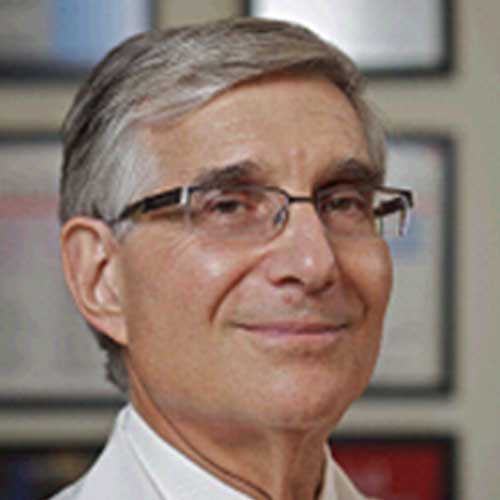Programming – Vascular Discovery 2026
Hyatt Regency Bellevue | Bellevue, Washington
Vascular Discovery 2026 Schedule-at-a-Glance
| Time | Activity |
|---|---|
| 8:00 a.m. to 6:00 p.m. |
Vascular Research Initiatives Conference (VRIC) Location: Cedar Ballroom |
| 3:00 p.m. to 7:00 p.m. |
Vascular Discovery 2026 Registration Opens On-Site |
| 6:00 p.m. to 8:00 p.m. |
Poster Session 1 & Reception |
| Time | Activity |
|---|---|
| 7:00 a.m. |
Registration Exhibits |
| 7:00 a.m. to 8:00 a.m. |
Continental Breakfast |
| 7:00 a.m. to 8:00 a.m. |
Early Career Training Session 1 |
| 8:00 a.m. to 8:30 a.m. |
Conference Opening Welcome Moderators: 8:00 Welcome Remarks from AHA President-Elect 8:15 Welcome Remarks from the Program Chair |
| 8:30 a.m. to 10:00 a.m. |
Plenary Session 1: Hot Topics in Cardiovascular Disease Moderators: 8:30 Talk Title: TBA 9:00 Talk Title: TBA 9:30 Keynote Lecture: TBA |
| 10:00 a.m. to 10:30 a.m. |
Break/Exhibits |
| 10:30 a.m. to 12:00 p.m. |
Concurrent Session 1a: Thrombosis, Hemostasis, and Lymphatic Biology Moderators: 10:30 Talk Title: TBA 10:55 Talk Title: TBA 11:20 Oral Abstract: TBA 11:30 Oral Abstract: TBA 11:40 Oral Abstract: TBA 11:50 Oral Abstract: TBA |
| 10:30 a.m. to 12:00 p.m. |
Concurrent Session 1b: Peripheral Artery Disease, Aortic Aneurysm, and Cerebrovascular Disease Moderators: 10:30 Talk Title: TBA 10:55 Talk Title: TBA 11:20 Oral Abstract: TBA 11:30 Oral Abstract: TBA 11:40 Oral Abstract: TBA 11:50 Oral Abstract: TBA |
| 12:00 to 1:30 p.m. |
PVD Council Annual Business Meeting & Networking Luncheon – OFF SITE |
| 12:00 p.m. to 1:30 p.m. | Lunch on your own |
| 1:30 p.m. to 3:00 p.m. |
Plenary Session 2: Highlights from the ATVB Journal Moderators: 1:30 Daniel Steinberg Early Career Investigator Award in Atherosclerosis/Lipoproteins 1:45 Karl Link Early Career Investigator Award in Thrombosis 2:00 Werner Risau Early Career Investigator Award in Vascular Biology 2:15 David A Dichek Mid-Career Investigator Award Lecture 2:30 ATVB Journal Report |
| 3:00 p.m. to 3:30 p.m. |
Break/Exhibits |
| 3:30 p.m. to 5:00 p.m. |
Concurrent Session 2a: Shobha Ghosh Investigator in Training Award Competition & Short Talks Moderators: Shobha Ghosh Investigator in Training Award Competition Short Talks: |
| 3:30 p.m. to 5:00 p.m. |
Concurrent Session 2b: Immunology and Inflammation in Vascular Disease Moderators: 3:30 Talk Title: TBA 3:55 Talk Title: TBA 4:20 Oral Abstract: TBA |
| 5:00 p.m. to 7:00 p.m. |
Poster Session 2 & Reception – Sponsored by the ATVB Journal |
| Time | Activity |
|---|---|
| 7:00 a.m. |
Registration Exhibits |
| 7:00 a.m. to 8:00 a.m. |
Continental Breakfast |
| 7:00 a.m. to 8:00 a.m. |
Early Career Training Session 2 |
| 8:00 a.m. to 9:30 a.m. |
Plenary Session 3: Advancing Cardiometabolic Care: From GLP-1 to SGLT2 and Beyond Moderators: 8:00 Title TBA 8:30 Title TBA 9:00 Title TBA |
| 9:30 a.m. to 10:00 a.m. |
Break/Exhibits |
| 10:00 a.m. to 11:30 a.m. |
Concurrent Session 3a: Metabolic Disorders and Vascular Diseases Moderators: 10:00 Talk Title: TBA 10:25 TBA 10:50 Oral Abstract: TBA 11:00 Oral Abstract: TBA 11:10 Oral Abstract: TBA 11:20 Oral Abstract: TBA |
| 10:00 a.m. to 11:30 a.m. |
Concurrent Session 3b: Vessel Wall Biology and Smooth Muscle Cell Dysfunction Moderators: 10:00 Talk Title: TBA 10:25 Talk Title: TBA 10:50 Oral Abstract: TBA 11:00 Oral Abstract: TBA 11:10 Oral Abstract: TBA 11:20 Oral Abstract: TBA |
| 11:30 a.m. to 1:00 p.m. |
The Mentor of Women Award Luncheon |
| 11:30 a.m. to 1:00 p.m. | Lunch on your own |
| 1:00 p.m. to 3:00 p.m. |
Plenary Session 4: Early Career Investigator Award Competition: Moderators: Irvine H. Page Junior Faculty Research Award Competition Kenneth M. Brinkhous Early Career Investigator Prize in Thrombosis Competition |
| 3:00 p.m. to 3:30 p.m. | Break/Exhibits Location: |
| 3:30 p.m. to 5:00 p.m. |
Concurrent Session 4a: Lipid Metabolism and Novel Therapeutic Targets in Atherosclerosis Moderators: 3:30 Title TBA 3:55 Talk Title: TBA 4:20 Oral Abstract: TBA 4:30 Oral Abstract: TBA 4:40 Oral Abstract: TBA 4:50 Oral Abstract: TBA |
| 3:30 p.m. to 5:00 p.m. |
Concurrent Session 4b: Genomics, Epigenetics, and Precision Medicine in Vascular Disease Moderators: 3:30 Talk Title: TBA 3:55 Talk Title: TBA 4:20 Oral Abstract: TBA 4:30 Oral Abstract: TBA 4:40 Oral Abstract: TBA 4:50 Oral Abstract: TBA |
| 5:00 p.m. to 7:00 p.m. | Poster Session 3 & Reception Location: Grand Ballroom |
| 7:00 p.m. to 10:00 p.m. | Vascular Discovery Council Celebration – OFF SITE (Presented by the ATVB & PVD Councils) Ticket is Required to attend. Visit the Registration Desk onsite for more Information. Purchase ticket here. |
| Time | Activity |
|---|---|
| 7:30 a.m. | Registration Location: Regency Foyer |
| 7:30 a.m. to 8:30 a.m. | Continental Breakfast Location: Evergreen Foyer |
| 8:30 a.m. to 9:00 a.m. | Plenary Session 5: Council Awards and Recognition Location: Evergreen Ballroom |
| 9:00 a.m. to 9:30 a.m. | Break Location: Evergreen Foyer |
| 9:30 a.m. to 11:00 a.m. |
Plenary Session 6: Invited Lecture Series Moderators: 9:30 Vascular Discovery Distinguished Lecture: TBA 10:00 Jeffrey M. Hoeg Arteriosclerosis, Thrombosis, and Vascular Biology Award for Basic Science and Clinical Research—Sponsored by the Council on Arteriosclerosis, Thrombosis, and Vascular Biology: TBA 10:30 PVD Mid-Career Award & Lecture –Sponsored by Council on Peripheral Vascular Disease: TBA |
| 11:00 a.m. to 11:15 a.m. |
Closing Remarks |
2026 Speakers

Peter Libby, MD, FAHA
Harvard Medical School
Brigham and Women’s Hospital
Keynote Lecturer
9:30 a.m., Thursday, May 14, 2026
Presentation Title: TBA
Dr. Peter Libby is a globally recognized leader in cardiovascular medicine, renowned for his groundbreaking research on inflammation and atherosclerosis. He holds the prestigious title of Mallinckrodt Professor of Medicine at Harvard Medical School and serves as Senior Physician at Brigham and Women’s Hospital. His work has shaped the field of vascular biology and continues to influence both basic and translational cardiovascular research.

Kiran Musunuru, MD, PhD, MPH, ML, MRA, FAHA
University of Pennsylvania
Vascular Discovery Distinguished Lecture
9:30 a.m., Saturday, May 16, 2026
Presentation Title: TBA
Dr. Kiran Musunuru is an actively practicing cardiologist, dedicated educator, and internationally recognized leader in cardiovascular genetics and gene editing. As the Barry J. Gertz Professor of Translational Research at the University of Pennsylvania, his work focuses on identifying genetic factors that protect against heart disease and translating those discoveries into novel therapies.
He is the recipient of numerous prestigious honors, including the Presidential Early Career Award for Scientists and Engineers, the American Heart Association’s Award of Meritorious Achievement and Joseph A. Vita Award, the Judson Daland Prize from the American Philosophical Society, and the Outstanding Investigator Award from the American Federation for Medical Research. He also received Harvard University’s Fannie Cox Prize for Excellence in Science Teaching.
Dr. Musunuru has served as Editor-in-Chief of Circulation: Genomic and Precision Medicine and currently sits on the NIH National Heart, Lung, and Blood Institute Advisory Council and the Board of Directors of the American Society of Human Genetics. He is the author of The CRISPR Generation and Genome Editing: A Practical Guide to Research and Clinical Applications, and is co-founder and Senior Scientific Advisor of Verve Therapeutics.
About this Meeting
This 2 ½-day meeting is sponsored by the Council on Arteriosclerosis, Thrombosis and Vascular Biology, the Peripheral Vascular Disease Council, and the Council on Genomic and Precision Medicine, in cooperation with and the Society for Vascular Surgery's Vascular Research Initiatives Conference.
Vascular Discovery Scientific Sessions will provide unique opportunities to meet with colleagues from around the world with wide-ranging research interests and expertise for the timely exchange of information about new and emerging scientific research in the areas of arteriosclerosis, thrombosis and vascular biology, peripheral vascular disease, vascular surgery research, genomics and precision medicine. We expect a broad representation from many disciplines and encourage young scientists to attend.
See the American Heart Association Policies and Guiding Values (PDF).
Target Audience
The conference will especially appeal to scientists and clinicians interested in:
- Allergy and Immunology
- Arteriosclerosis
- Biochemistry
- Biological Sciences
- Diabetes and Metabolism
- Functional Genomics
- Genetics
- Hematology
- Internal Medicine
- Molecular/Cellular Biology
- Nutrition
- Pathology
- Peripheral Artery Disease
- Pharmacology
- Physiology
- Vascular Surgery
- Thrombosis
- Vascular Biology
- Vascular Medicine
Learning Objectives
At the conclusion of this conference, participants will be able to:
- Discuss recent advances and emerging experimental models in ATVB and peripheral vascular diseases that target primary acquired diseases and/or secondary factors contributing to vascular-related disorders.
- Summarize findings from recent translational research or clinical trials and the impact for future treatment and/or management of vascular-related disorders.
- Describe best practices associated with ATVB scientific research and/or the management of patients with vascular-related diseases.